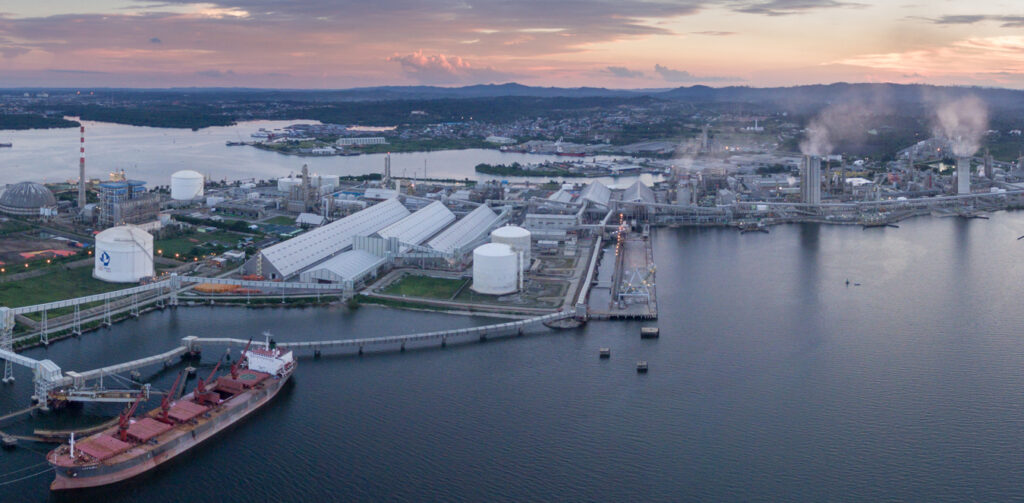Nuclear-powered ammonia production in Indonesia
By Geofrey Njovu on May 25, 2023

Four Danish companies – Topsoe, Copenhagen Atomics, Alfa Laval and Aalborg CSP – and two state-owned Indonesian companies – Pupuk Kaltim and Pertamina New & Renewable Energy – have signed an MoU for the development of a 1 million tonnes per year, nuclear-powered ammonia project for fertiliser production in Bontang, Indonesia.
The proposed project will have a 1 GW electrolysis capacity, powered by Copenhagen Atomics’ thorium molten salt reactors (twenty-five small modular units). Topsoe’s solid oxide electrolysis cell (SOEC) technology and its ammonia synthesis technology will both be used in the project.
As SOEC electrolysis requires high temperatures, reusing waste heat from the nuclear reactors for electrolysis would decrease the project’s overall energy requirements. Alfa Laval and Aalborg CSP would likely oversee this part of the project, as they are both experts in heat exchanger technologies.
The outlook of contributing to better food conditions for 45 million people in Indonesia, while leaving a close to zero carbon footprint is absolutely amazing. This is a very promising and progressive project, and we are excited to be able to support with our world-class Power-to-X solutions.
Nikolaj Knudsen, Topsoe Head of Business Development Power-to-X, in Topsoe’s official press release, 19 May 2023
The perspective is enormous. Low emission ammonia at a low price helps reduce the world’s CO2 emissions, and for our Thorium reactors, that market is a huge opportunity, especially when we can offer a complete plant together with our partners.
Thomas Jam Pedersen, Board chairman and co-founder of Copenhagen Atomics in Topsoe’s official press release, 19 May 2023
The project would be based in the city of Bontang in Indonesia’s east, where Pupuk Kaltim already produces over 2.5 million tonnes of ammonia each year at the Kaltim industrial complex. The partners estimate that the project’s annual ammonia output can produce enough fertiliser to cover food supplies for 45 million Indonesians, or one-sixth of the country’s population.